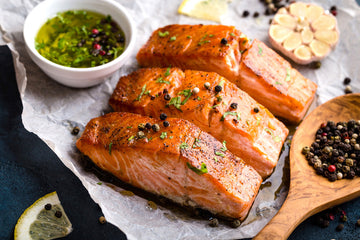Food safety involves knowing how to buy, prepare, and store food in order to prevent the spread of harmful bacteria that cause foodborne illnesses. These illnesses can be caused by common microbes like Salmonella and E. coli. Food illnesses can cause serious health problems, and if one is not careful, even death.
Follow these four steps to help keep you and your family safe:
1. Importance of Washing Hands.

Always wash your food, hands, counters, and cooking tools. One good thing to have come out of our collective pandemic experience is that people are more aware of the need to wash our hands and the food items we buy. Ensure that hands are washed in warm soapy water for at least 20 seconds. Please note that meat, poultry, fish, or eggs need not be washed. If water splashes from the sink in the process of washing, it can spread bacteria.
2. Separation and Storage.

Keep raw foods to themselves. Germs can spread from one food to another. Raw meat, poultry, seafood, and eggs need to be kept away from other foods in shopping carts, bags, and the fridge. Try to keep a separate cutting board or plate for raw foods. Also, do not reuse marinades used on raw foods unless you bring them to a boil first.
3. Cooking the Right Way.

Food needs to get hot and stay hot. Heat kills germs. One can use a food thermometer to make sure that food is cooked to the right temperature. Safe internal cooking temperatures vary depending on the type of meat but are commonly around 145°F (65°C) for whole meats and 160–165°F (70–75°C) for ground meats. After meat is cooked, it should remain at a minimum of 140°F (60°C) while serving, and then be refrigerated within 2 hours of cooking or removing it from the oven.
4. Refrigeration

Put food in the fridge right away. Put food in the fridge or freezer within 2 hours after cooking or buying from the store. Do this within 1 hour if it is 90 degrees or hotter outside. If thawing is required, thaw the food in the fridge itself, under cold water or in the microwave.
Anyone can get sick from eating spoiled food. Some people like pregnant women, seniors and people with certain health conditions (like cancer, diabetes etc.) are more likely to get sick from food illnesses. If you think you or someone around you has symptoms of food poisoning, call your doctor and get medical care right away.





